The Gender Justice Practitioner Hub
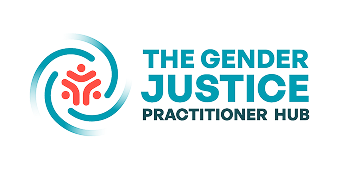
The Gender Justice Practitioner Hub (The GJP Hub) was established to foster collaboration, strengthen coordination and facilitate experience-sharing amongst practitioners all over the world to ensure better gender justice outcomes for survivors of core international crimes.
In recent decades, many obstacles to securing meaningful gender justice in accountability processes for core international crimes (particularly war crimes, crimes against humanity and genocide) have become increasingly apparent. Discriminatory gender hierarchy operates to prevent equal and effective access to justice for individuals and groups who are disadvantaged by constructed gender norms. While the issue of conflict-related sexual violence has become more visible, and various initiatives are underway to address it, effective justice is still rarely achieved for sexual violence victims. The many other aspects of gender justice beyond sexual violence crimes and the specific barriers to achieving them remain under-recognised and seldom addressed in accountability processes.
All too often, attempts to secure accountability for gendered crimes are fettered by justice systems ill-equipped to meaningfully address these crimes. With each new accountability process undertaken, there is a risk of the same mistakes and omissions being repeated.
These difficulties are not insurmountable. There are several landmark legal developments and successes from national, regional and international courts around the world that demonstrate that more effective gender justice can be achieved. Experts and institutions with decades of relevant experience exist across multiple contexts. It is critical that this experience is leveraged. The conflicts in Ukraine, Sudan, Gaza, and Myanmar are recent examples in a long series of situations underscoring the urgent need for more effective and coordinated approaches to channelling comprehensive gender expertise into accountability processes from the outset.
The establishment of the GJP Hub is a practical step towards addressing these challenges and will help to promote more gender-just accountability processes in the future.
The Gender Justice Practitioner Hub is proud to be supported by a fantastic advisory board. Their guidance and input is critical in ensuring the work of the GJP Hub remains inclusive, impactful, and aligned with current gender issues. You can read about our advisory board members here.
Roundtables:
Nairobi:
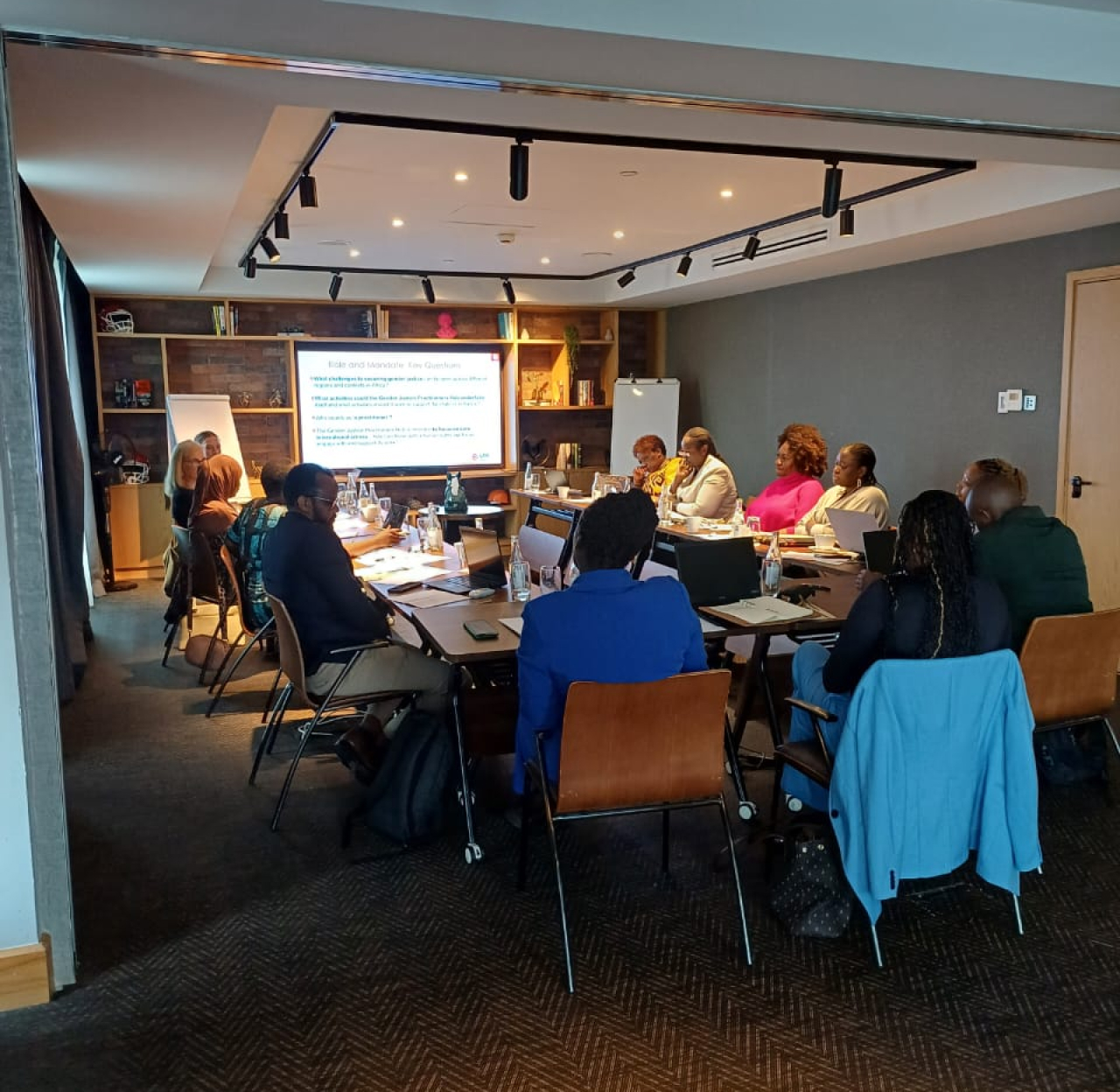
On 26 June 2024, a Gender Justice Practitioner Hub regional roundtable took place in Nairobi, Kenya. Participants highlighted the need to define “gender justice” and address challenges such as limited legal access, lack of representation, and legislative gaps. Proposed activities for the Hub include creating a resource centre, supporting documentation of conflict-related sexual violence (CRSV), and facilitating regional roundtables. Participants underscore the need to include a broad range of practitioners, including survivors and judicial officers. Recommendations outline how the GJP Hub could support development of domestic legal frameworks, enhanced capacity building, and fostering collaboration with stakeholders like UN Women and civil society organisations. Specific suggestions included ensuring the GJP Hub operates effectively within national jurisdictions, advocating for sufficient laws, and promoting accountability for core international crimes. Enhancing the environment for human rights defenders in the military, resource sharing, and lobbying governments for political will were also emphasised. Additionally, influencing prosecutorial strategies to include gender-based crimes in charges was recommended. The work of South Africa’s Thuthuzela Care Centres were highlighted as a best practice, offering comprehensive services to reduce secondary victimisation and support successful prosecutions.
Bogotá:
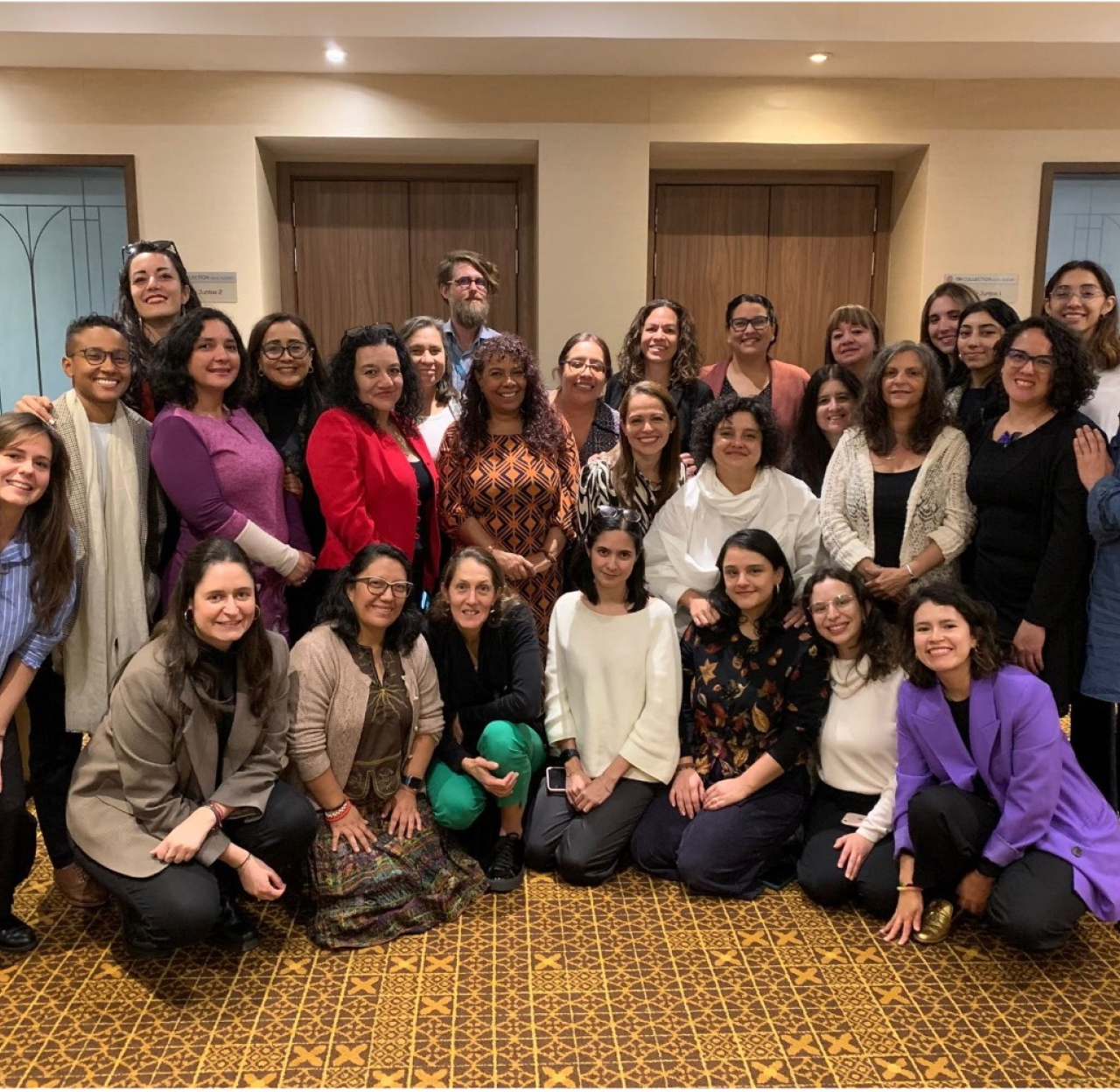
On 2 May 2024, Legal Action Worldwide and the Embassy of Australia in Colombia facilitated a Gender Justice Practitioners Hub roundtable in Bogotá, Colombia. More than 30 representatives from civil society, academia, UN agencies and executive and judicial state institutions joined to gather their input and perspectives as experts in gender justice efforts in the region. Recognising the decades of consolidated expertise in the region in the investigation, prosecution, and punishment of gender-based crimes in contexts of armed conflict, dictatorships, and political repression, participants underscored the need for a space for practitioners to safely come together, coordinate and collaborate. Roundtable participants highlighted the importance that the Hub prioritises access and communication of the vast amount of information, resources, learnings, jurisprudence, and legal frameworks that is already produced and available in the region. Ideas around the functioning of the Hub were also considered. Furthermore, participants supported the idea that the Hub could integrate interdisciplinary tools, as the experience in Latin America has shown that the combination of knowledge and support beyond legal professionals have proved successful in key landmark decisions on gendered crimes.
Geneva:
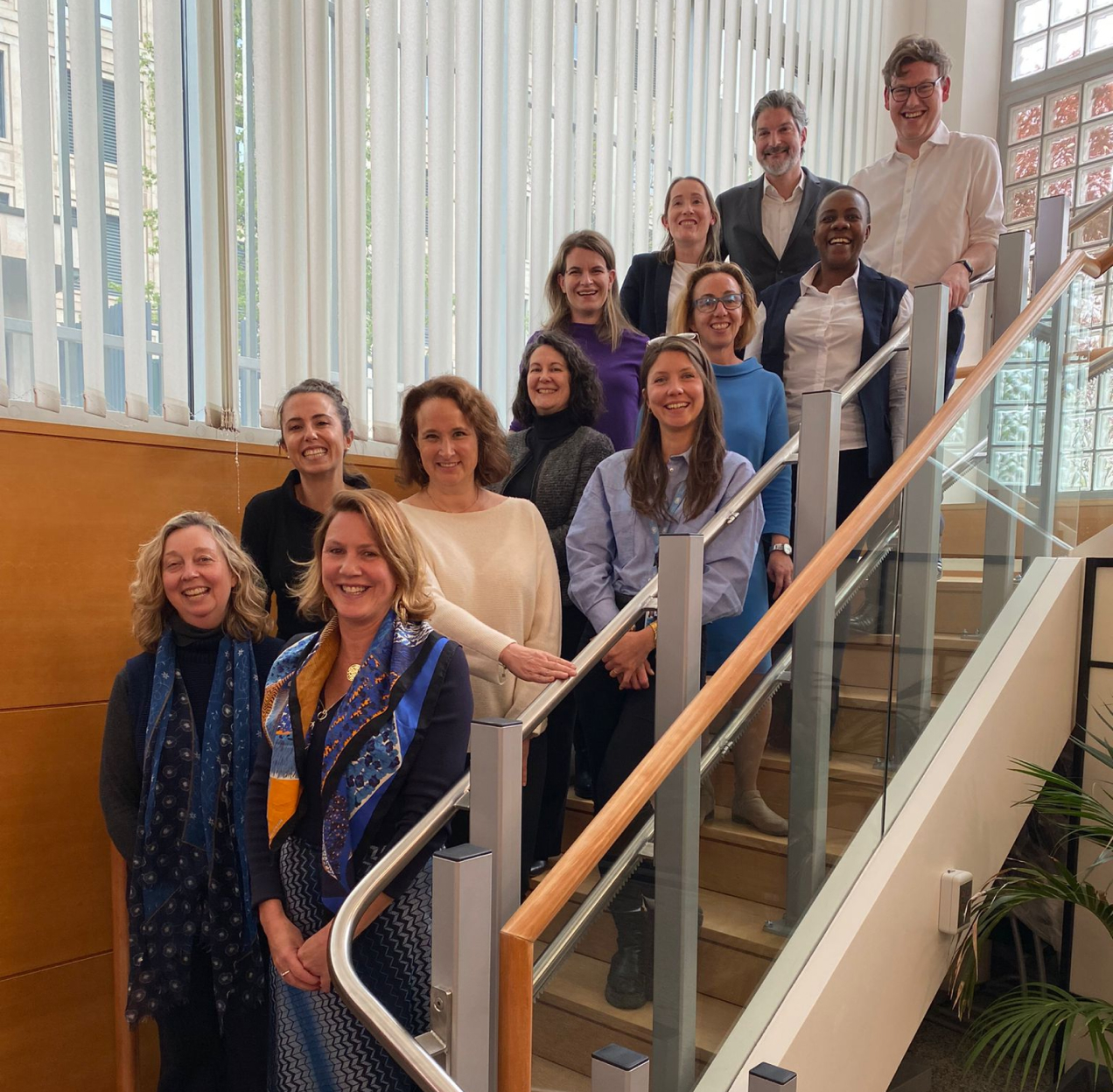
On 24 April 2024, LAW and the Permanent Mission of Australia to the United Nations facilitated a Gender Justice Practitioners Hub roundtable in Geneva, Switzerland. 30 representatives from civil society, member states and key UN mechanisms, commissions of inquiry and fact-finding bodies joined to hear feedback from previous roundtables and provide input on the Hub initiative. Recognising the growing threat to movements seeking gender justice, participants underscored the need for a space for practitioners to safely come together, coordinate and collaborate, echoing a clear finding fromprevious roundtables. The role of a future Hub as a central repository was also considered. Roundtable participants highlighted the need for precedent, policy and best practice to be curated and made accessible for a wide range of practitioners.
New York:
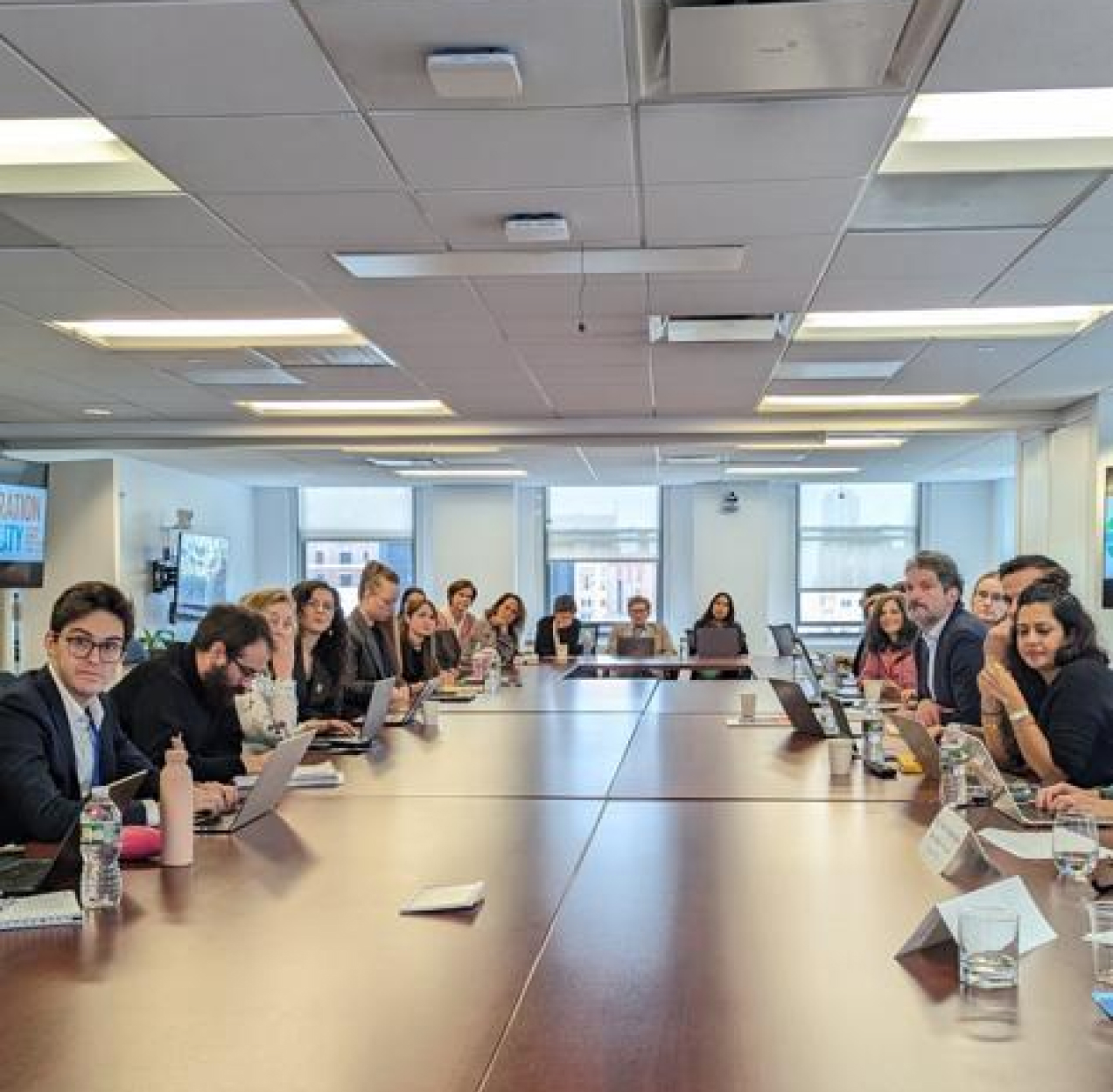
On 5 December 2023, LAW, together with UN Women, chaired the side event “Supporting Practitioners in Securing Gender Justice for Core International Crimes”. This important discussion considered the possible establishment of an International Gender Justice Practitioner Hub (GJP Hub). Through collaboration, coordination and by leveraging decades of experience at national, regional and international levels, the GJP Hub would provide practical tools and assistance to practitioners to help strengthen efforts in pursuit of gender justice for core international crimes. This discussion was one of seven regional events, following roundtables in Beirut and Bangkok in 2023, and with events in Nairobi, Panama, The Hague and Geneva to follow in 2024, bringing together experts from each region to provide feedback on the GJP Hub initiative responding to the challenges faced in different contexts.
Bangkok:
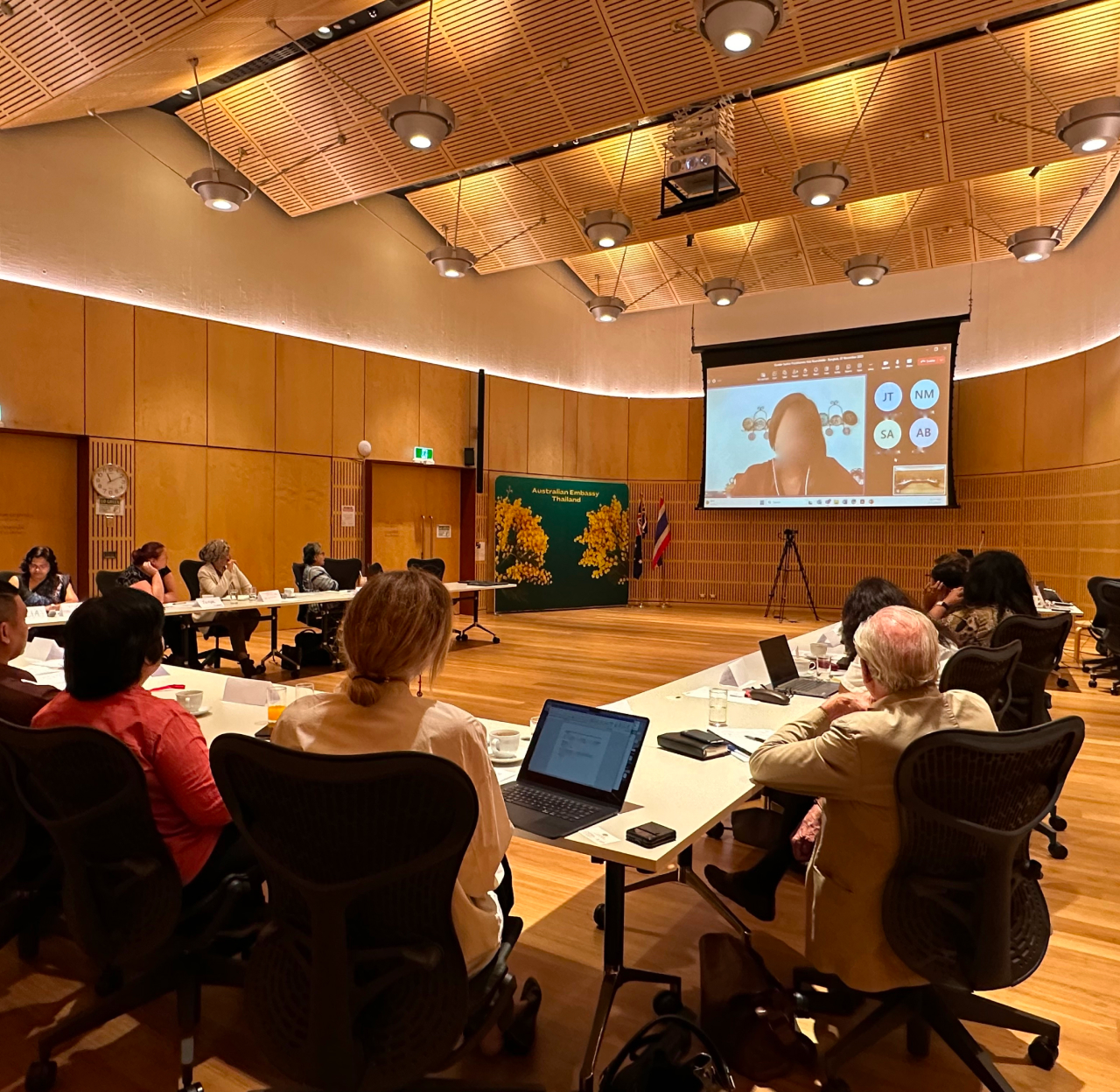
On 22 November 2023, LAW chaired the Asia Pacific GJP Hub Roundtable in Bangkok, the second of six regional events to gather feedback and input on the GJP Hub initiative. Australian Assistant Secretary and Principal Specialist Gender Equality, Sarah Goulding, opened the roundtable and highlighted the critical nature of the conversation to bring together gender equality and the women, peace and security agenda. Participants working on a variety of contexts across the Asia Pacific region, including Myanmar, Bangladesh, Thailand and Sri Lanka, underscored a range of challenges for those working towards gender justice throughout the Asia-Pacific region –and provided ideas and thinking about how a GJP Hub could support their work.
Beirut:

On 1 June 2023, LAW facilitated a roundtable in Beirut, Lebanon, the Hub initiative. 34 practitioners, including representatives of civil society, academics and survivor groups, and representatives from the UN based across the Middle East and North Africa (including Lebanon, Syria, Palestine and Libya) attended the discussion. Participants were resoundingly in favour of the initiative. There was recognition that, despite operating in a range of different contexts across the MENA region, many of the obstacles faced were the same and that collaboration and coordination were key to addressing these challenges. Participants underscored the need for a ‘safe space’ for practitioners regularly working for gender justice to come together, discuss common issues and to receive advice from experts and from each other. Throughout the roundtable, participants emphasised that the Hub must bridge the global and the regional. Legal Action Worldwide’s Executive Director, Antonia Mulvey, who facilitated the roundtable said: “This was the perfect location to kick-off this discussion! The participants have set out a clear need for an initiative like the Hub to support those working on the front-lines and have provided a clear direction forward.”
